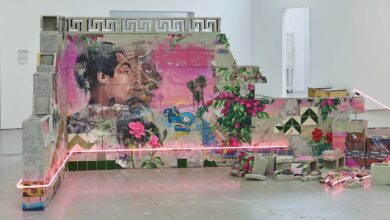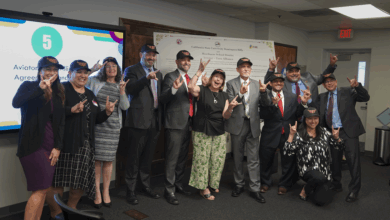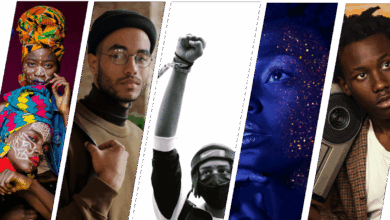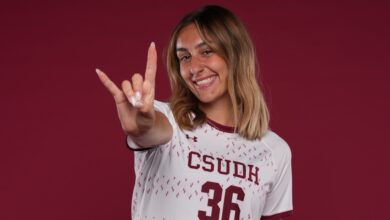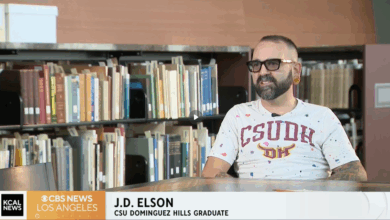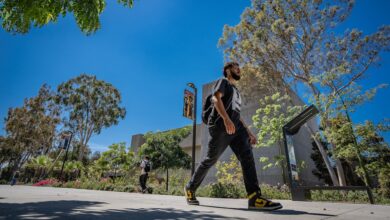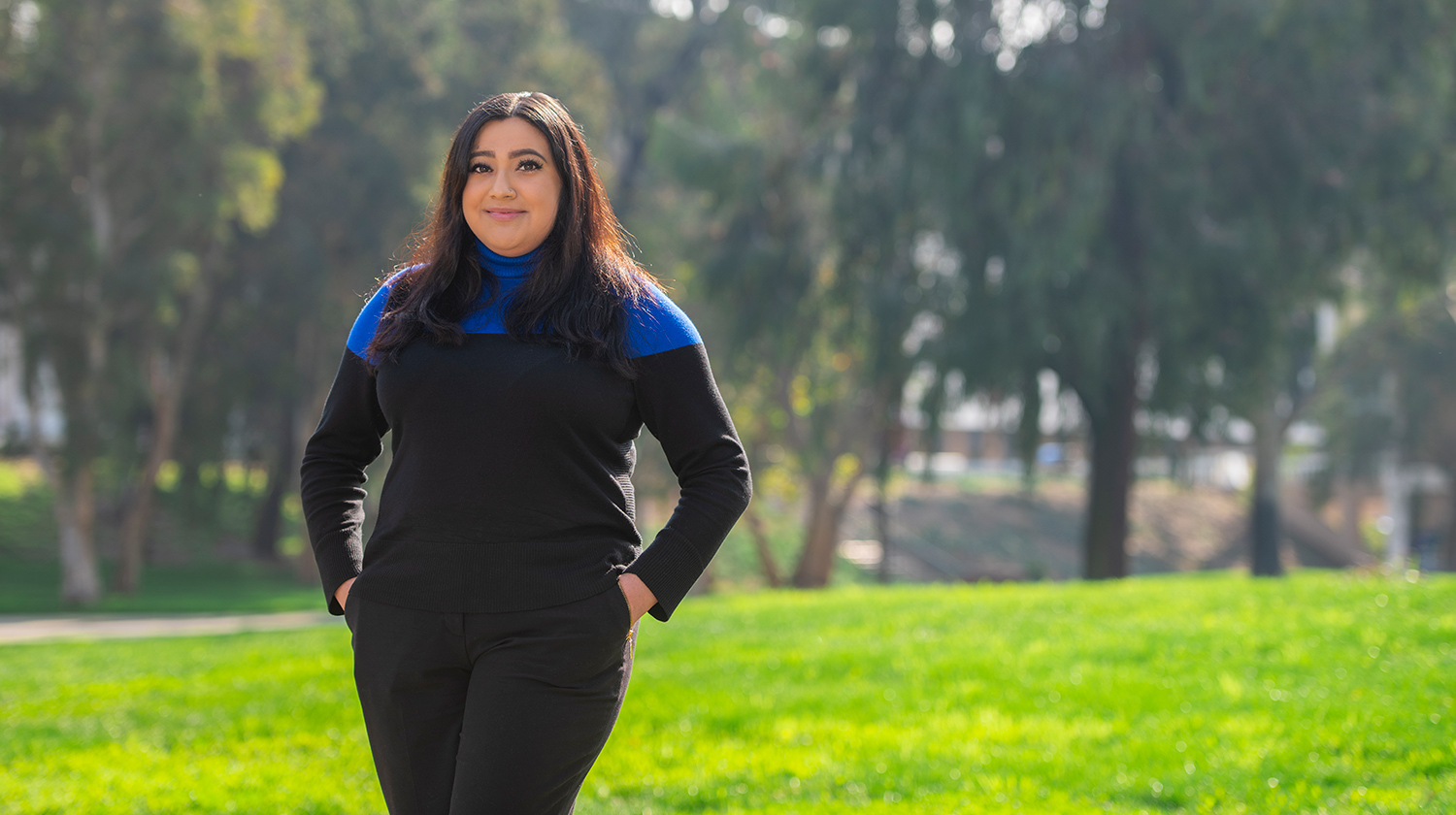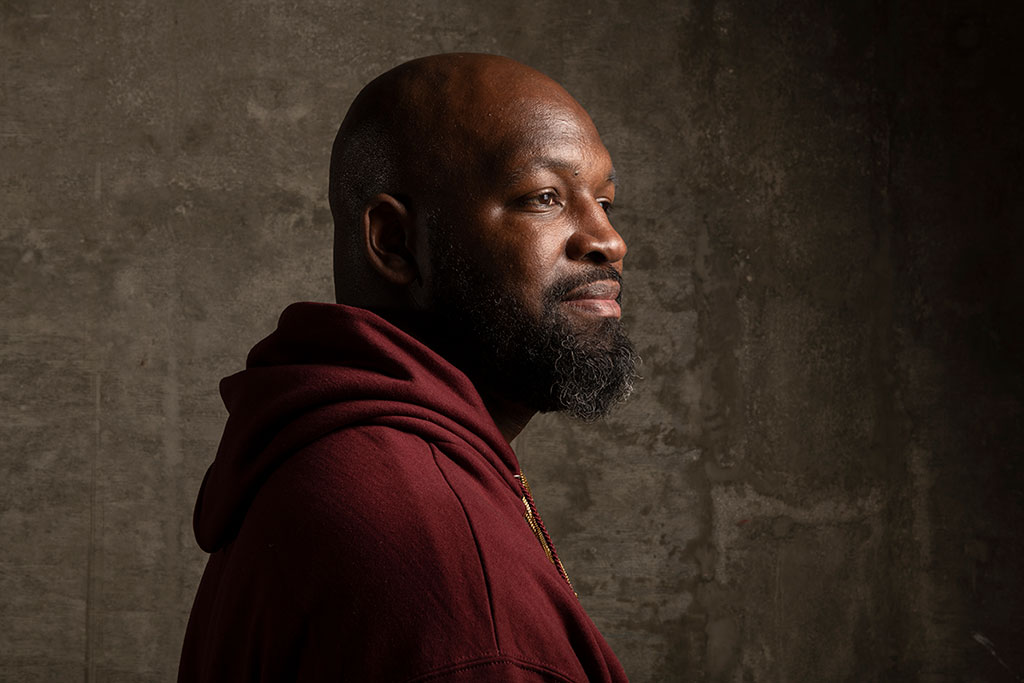
For Trimaine Davis, the new interim director of the CSUDH Black Resource Center (BRC), education was his way out of a generational cycle of addiction and depression. Now, he dedicates himself to helping others find the same opportunities. “I really take this seriously and do what I can to make sure that the doors that were opened for me remain open for those who are falling behind,” he says.
Davis has traveled a long, hard road to get to his current position at CSUDH. Born to a drug-addicted mother and absentee father, he was placed into foster care at birth. When he was five years old, Davis’ paternal grandmother became his legal guardian, and he grew up with her in the hardscrabble East Bay city of Pittsburg, California.
His mother eventually conquered her addiction, but passed away when Davis was just 14 years old. “Thankfully, my mother was able to surpass her demons and became a functioning person in society,” says Davis. “So I had a small window of time to be with her and build a relationship.”
Soon afterwards, Davis discovered that his father had been diagnosed with AIDS. Davis and his grandmother served as his caregivers as the disease sapped his strength over the next two years.
“I hated it at first,” he recalls. “But it turned out to be a great blessing in disguise, because I had no other choice but to get to know my dad. We had some conversations where I asked him how he ended up on this path. I needed to know and understand why he was not there for me.”
“Thankfully, he was very open and honest with me about his struggles with depression, self-esteem, and what we will now call imposter syndrome. My father suffered from that, and by talking to him, I was able to understand where he was coming from. My anger definitely dialed back a lot.”
In speaking with his parents and grandmother, one common theme emerged: a lack of education. “My grandmother stopped going to school in the seventh grade. My grandpa stopped going in the fifth grade. My parents didn’t finish high school,” he says. “I thought there had to be a correlation between that and the realities of my parent’s dysfunction and addiction. Education became something I became very serious and very passionate about.”
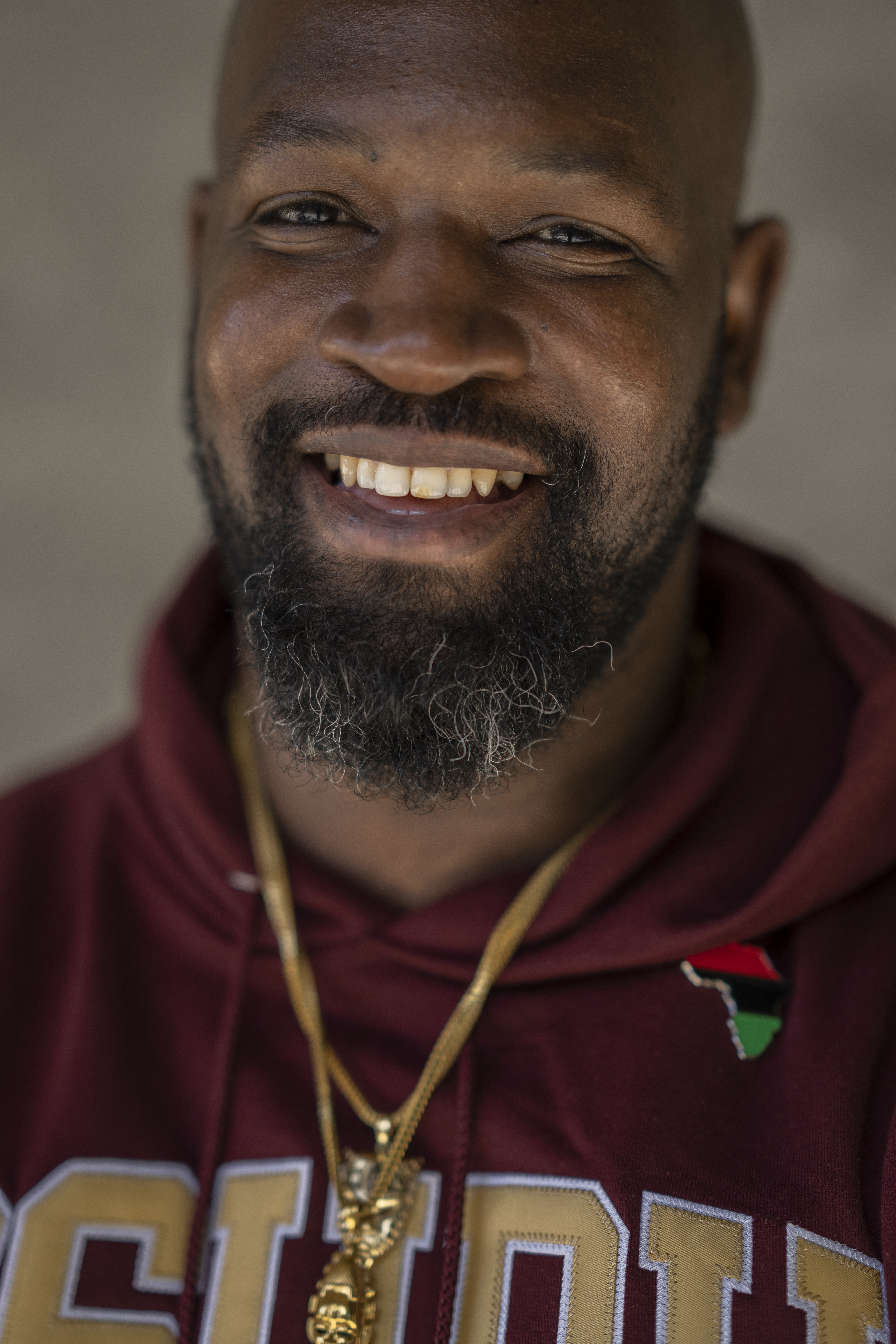
After graduating from high school, Davis’ 6’8” size and athleticism landed him a scholarship to play basketball at San Diego State University. As he immersed himself in academia, he saw himself developing an interest in being an educator himself. His interest in becoming a high school teacher waned, however, as he felt the profession was being forced to “teach to the standardized tests” during the time of No Child Left Behind policies.
He started doing nonprofit work, and soon got the opportunity to get back into higher education–this time as an outreach and recruitment officer for San Diego State. “That was back in 2007, and I haven’t looked back since!” he says.
Before coming to CSUDH, Davis spent years working in a variety of outreach positions at California universities. From CSU Northridge to Fullerton State to UCLA, he has strived to improve educational access and equity. “Working in education, I’ve noticed that often I’ll be in spaces where I’m the only one who looks like me,” he says. “I’m here to reach out to those like me and make sure they get the chances they deserve.”
Davis is excited to be working at CSUDH. “There’s a special kind of synergy here at CSUDH. Its historical roots are very deep, but it’s also an institution that’s looking in the future and asking how can we add to that legacy? That was a big draw to me.”
In fact, Davis says, he’s always seen himself eventually coming to CSUDH. “In my previous jobs, we came to a lot of different events here on campus,” he says. “Every time, I thought that one day I’m going to get here. It just felt right. That’s why folks say you should never you should never give up on a dream. I was fortunate enough to land this opportunity. I think this campus has a resilience of a spirit that each student, staff, and faculty member can relate to.”
His immediate plans are to update the Black Resource Center, getting new furniture and generally sprucing up the space, which has been worn down from years of student activity. In the long term, Davis says his work will largely revolve around student development. “I think I came along at the right time,” he says. “There seems to be a lot of energy in aligning the overall strategic plan of our campus with student development. I’m looking forward to seeing how the BRC plays into that.”
“I think the one of the biggest challenges is to make sure that we really understand what our students need, and then seeing how we can address those things,” he adds. “I look forward to tackling those challenges, because I think it’s something that’s very possible. It’s just a matter of us coming together and doing it–which I feel like this campus is doing.”
What do you enjoy doing when you’re not working?
Spending time with my beautiful family
Favorite movie?
Above The Rim
Favorite book?
I Came As A Shadow: An Autobiography by John Thompson
Favorite song:
A toss-up between: “A Change Is Gonna Come” by Sam Cooke and “White Man’z World” by 2Pac
Favorite food?
“Everything my spouse makes!”
Least food?
I can’t stand fish dishes.
What’s your favorite place to spend time?
On a basketball court, playing basketball
Cats or dogs?
Dogs!!!
What’s a place you’ve never been to that you’d like to travel to?
I would love to go to Dakar, Senegal to see the African Renaissance Monument one day.
If a movie was made about your life, who would you want to play you?
Being that I’m so tall, someone like Winston Duke or Aldis Hodge.
What’s something interesting about yourself that others may not know?
I only have one kidney. (I donated my right kidney to my son.)
What inspires you to get up in the morning?
My family, my passion, and my purpose.
What’s one thing you couldn’t live without?
My Family!!!!
If you could have one superpower, what would it be?
The superpower to end racism.
Describe yourself in three words:
“Passionate, Conscious, Humbled”



